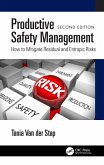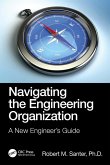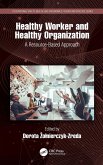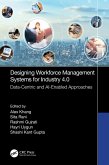Handbook of Talent Management and Learning Organizations (eBook, PDF)
A Post-Pandemic Perspective
Redaktion: Bari, Muhammad Waseem; Di Virgilio, Francesca
173,95 €
173,95 €
inkl. MwSt.
Sofort per Download lieferbar

87 °P sammeln
173,95 €
Als Download kaufen

173,95 €
inkl. MwSt.
Sofort per Download lieferbar

87 °P sammeln
Jetzt verschenken
Alle Infos zum eBook verschenken
173,95 €
inkl. MwSt.
Sofort per Download lieferbar
Alle Infos zum eBook verschenken

87 °P sammeln
Handbook of Talent Management and Learning Organizations (eBook, PDF)
A Post-Pandemic Perspective
Redaktion: Bari, Muhammad Waseem; Di Virgilio, Francesca
- Format: PDF
- Merkliste
- Auf die Merkliste
- Bewerten Bewerten
- Teilen
- Produkt teilen
- Produkterinnerung
- Produkterinnerung

Bitte loggen Sie sich zunächst in Ihr Kundenkonto ein oder registrieren Sie sich bei
bücher.de, um das eBook-Abo tolino select nutzen zu können.
Hier können Sie sich einloggen
Hier können Sie sich einloggen
Sie sind bereits eingeloggt. Klicken Sie auf 2. tolino select Abo, um fortzufahren.

Bitte loggen Sie sich zunächst in Ihr Kundenkonto ein oder registrieren Sie sich bei bücher.de, um das eBook-Abo tolino select nutzen zu können.
This handbook contributes to the advanced knowledge of talent management and learning organizations in the post-pandemic era. It provides new insights and contributions to the existing literature on business organizations through the dissemination of information as well as empirical pieces of evidence from various parts of the world.
- Geräte: PC
- mit Kopierschutz
- eBook Hilfe
- Größe: 5.18MB
Andere Kunden interessierten sich auch für
![Handbook of Talent Management and Learning Organizations (eBook, ePUB) Handbook of Talent Management and Learning Organizations (eBook, ePUB)]() Handbook of Talent Management and Learning Organizations (eBook, ePUB)173,95 €
Handbook of Talent Management and Learning Organizations (eBook, ePUB)173,95 €![Product Lifecycle Management (PLM) (eBook, PDF) Product Lifecycle Management (PLM) (eBook, PDF)]() Uthayan ElangovanProduct Lifecycle Management (PLM) (eBook, PDF)102,95 €
Uthayan ElangovanProduct Lifecycle Management (PLM) (eBook, PDF)102,95 €![Productive Safety Management (eBook, PDF) Productive Safety Management (eBook, PDF)]() Tania van der StapProductive Safety Management (eBook, PDF)41,95 €
Tania van der StapProductive Safety Management (eBook, PDF)41,95 €![Engineering Pedagogy Towards Outcome-Based Education (eBook, PDF) Engineering Pedagogy Towards Outcome-Based Education (eBook, PDF)]() Engineering Pedagogy Towards Outcome-Based Education (eBook, PDF)48,95 €
Engineering Pedagogy Towards Outcome-Based Education (eBook, PDF)48,95 €![Navigating the Engineering Organization (eBook, PDF) Navigating the Engineering Organization (eBook, PDF)]() Robert M. SanterNavigating the Engineering Organization (eBook, PDF)50,95 €
Robert M. SanterNavigating the Engineering Organization (eBook, PDF)50,95 €![Healthy Worker and Healthy Organization (eBook, PDF) Healthy Worker and Healthy Organization (eBook, PDF)]() Healthy Worker and Healthy Organization (eBook, PDF)48,95 €
Healthy Worker and Healthy Organization (eBook, PDF)48,95 €![Designing Workforce Management Systems for Industry 4.0 (eBook, PDF) Designing Workforce Management Systems for Industry 4.0 (eBook, PDF)]() Designing Workforce Management Systems for Industry 4.0 (eBook, PDF)52,95 €
Designing Workforce Management Systems for Industry 4.0 (eBook, PDF)52,95 €-
-
-
This handbook contributes to the advanced knowledge of talent management and learning organizations in the post-pandemic era. It provides new insights and contributions to the existing literature on business organizations through the dissemination of information as well as empirical pieces of evidence from various parts of the world.
Dieser Download kann aus rechtlichen Gründen nur mit Rechnungsadresse in A, B, BG, CY, CZ, D, DK, EW, E, FIN, F, GR, HR, H, IRL, I, LT, L, LR, M, NL, PL, P, R, S, SLO, SK ausgeliefert werden.
Produktdetails
- Produktdetails
- Verlag: Taylor & Francis eBooks
- Seitenzahl: 358
- Erscheinungstermin: 19. Februar 2025
- Englisch
- ISBN-13: 9781040300268
- Artikelnr.: 72786959
- Verlag: Taylor & Francis eBooks
- Seitenzahl: 358
- Erscheinungstermin: 19. Februar 2025
- Englisch
- ISBN-13: 9781040300268
- Artikelnr.: 72786959
- Herstellerkennzeichnung Die Herstellerinformationen sind derzeit nicht verfügbar.
Dr. Muhammad Waseem Bari is an assistant professor at Lyallpur Business School, Government College University Faisalabad, Pakistan. He attained his Doctorate in Business Administration, specializing in human resource management, from the esteemed Beijing Institute of Technology, P.R. China. Dr. Waseem has distinguished himself through the publication of numerous scholarly articles in prestigious, high-impact journals. He is the esteemed editor of nine books with renowned publishers, encompassing tourism, organizational performance, and knowledge management. Furthermore, Dr. Waseem holds the positions of guest editor for Frontiers Publishers and article editor for Sage Publications, in addition to being a reviewer for several eminent journals. His scholarly contributions are further evidenced by his numerous publications in leading SSCI journals. Dr. Waseem's extensive experience spans the banking and FMCG industries, and he is also recognized as a corporate trainer and consultant. His principal research interests include knowledge management, psychological contracts, innovation, organizational change, and tourism. Dr. Francesca Di Virgilio is a full professor (tenured) of organization design and human resources management at the Department of Economics at the University of Molise, Italy. Her PhD is in organization, technology, and development of human resources. She's the rector's delegate for placement and technology transfer activities and the coordinator of PhD courses in "Law and Economics". She has successfully supervised and examined several master's and PhD theses (national and international) in the area of HRM. She has more than 20 years of teaching experience at undergraduate, graduate, and master's level. She is a board member of many international research excellence networks. She has more than 50 publications in national and international academic journals, chapters in various edited books, and national and international books. She is the reviewer of some academic international journals and an editorial board member of national and international academic journals. She has presented more than 30 papers at national and international conferences, including expert sessions as a keynote speaker. Her current research focuses on human resources management, organizational behavior, and knowledge management.
Section 1: Introduction, Definitions, and Overviews. 1. Talent Management
and Learning Organizations: A Post-Pandemic Perspective. Section 2:
Theoretical and Strategic Aspects of Talent Management and Learning
Organizations. 2. Talent Management Strategies. 3. The Janus Face of Talent
Management. 4. Inclusive talent management as the source of open
innovation. 5. Review of Literature on Talent Management and Learning
Organizations. 6. Talent Management in Learning Organizations: Designing
Curriculum for Business Schools. 7. How innovation and creativity could be
enhanced through talent management. 8. Measuring Quality and Quantity of
Talent in Learning Organizations. 9. Talent Management And The Learning
Organisation - How To Co-Op With Different Attitudes And Behaviours While
Managing The Future Talent. 10. Managing Talent for Learning Organizations
in the Post-Pandemic Era. 11. Talent Management, Knowledge-Based View, and
Learning Organizations. 12. Learning Organizations' Talent Management and
Gig Economy. 13. The role of digital marketing as a sustainable tool to
support the third sector. 14. Talent Management Practices and Learning
Organizations in Emerging Markets. Section 3: 15. Organizational Theory and
Managing Employees in Learning Organizations. Section 4: Contextual
Studies. 16. The Future of Business Schools- Balancing Skill Development,
Non-Business Knowledge, and Accreditations. 17. Talent motivation and
knowledge transfer, to support cultural entrepreneurship: evidence from
Italian higher education contest. 18. Organizational Challenges and Talent
Mobility in Bangladesh: A Comparative Analysis between Pre and
Post-COVID-19 Era.
and Learning Organizations: A Post-Pandemic Perspective. Section 2:
Theoretical and Strategic Aspects of Talent Management and Learning
Organizations. 2. Talent Management Strategies. 3. The Janus Face of Talent
Management. 4. Inclusive talent management as the source of open
innovation. 5. Review of Literature on Talent Management and Learning
Organizations. 6. Talent Management in Learning Organizations: Designing
Curriculum for Business Schools. 7. How innovation and creativity could be
enhanced through talent management. 8. Measuring Quality and Quantity of
Talent in Learning Organizations. 9. Talent Management And The Learning
Organisation - How To Co-Op With Different Attitudes And Behaviours While
Managing The Future Talent. 10. Managing Talent for Learning Organizations
in the Post-Pandemic Era. 11. Talent Management, Knowledge-Based View, and
Learning Organizations. 12. Learning Organizations' Talent Management and
Gig Economy. 13. The role of digital marketing as a sustainable tool to
support the third sector. 14. Talent Management Practices and Learning
Organizations in Emerging Markets. Section 3: 15. Organizational Theory and
Managing Employees in Learning Organizations. Section 4: Contextual
Studies. 16. The Future of Business Schools- Balancing Skill Development,
Non-Business Knowledge, and Accreditations. 17. Talent motivation and
knowledge transfer, to support cultural entrepreneurship: evidence from
Italian higher education contest. 18. Organizational Challenges and Talent
Mobility in Bangladesh: A Comparative Analysis between Pre and
Post-COVID-19 Era.
Section 1: Introduction, Definitions, and Overviews. 1. Talent Management
and Learning Organizations: A Post-Pandemic Perspective. Section 2:
Theoretical and Strategic Aspects of Talent Management and Learning
Organizations. 2. Talent Management Strategies. 3. The Janus Face of Talent
Management. 4. Inclusive talent management as the source of open
innovation. 5. Review of Literature on Talent Management and Learning
Organizations. 6. Talent Management in Learning Organizations: Designing
Curriculum for Business Schools. 7. How innovation and creativity could be
enhanced through talent management. 8. Measuring Quality and Quantity of
Talent in Learning Organizations. 9. Talent Management And The Learning
Organisation - How To Co-Op With Different Attitudes And Behaviours While
Managing The Future Talent. 10. Managing Talent for Learning Organizations
in the Post-Pandemic Era. 11. Talent Management, Knowledge-Based View, and
Learning Organizations. 12. Learning Organizations' Talent Management and
Gig Economy. 13. The role of digital marketing as a sustainable tool to
support the third sector. 14. Talent Management Practices and Learning
Organizations in Emerging Markets. Section 3: 15. Organizational Theory and
Managing Employees in Learning Organizations. Section 4: Contextual
Studies. 16. The Future of Business Schools- Balancing Skill Development,
Non-Business Knowledge, and Accreditations. 17. Talent motivation and
knowledge transfer, to support cultural entrepreneurship: evidence from
Italian higher education contest. 18. Organizational Challenges and Talent
Mobility in Bangladesh: A Comparative Analysis between Pre and
Post-COVID-19 Era.
and Learning Organizations: A Post-Pandemic Perspective. Section 2:
Theoretical and Strategic Aspects of Talent Management and Learning
Organizations. 2. Talent Management Strategies. 3. The Janus Face of Talent
Management. 4. Inclusive talent management as the source of open
innovation. 5. Review of Literature on Talent Management and Learning
Organizations. 6. Talent Management in Learning Organizations: Designing
Curriculum for Business Schools. 7. How innovation and creativity could be
enhanced through talent management. 8. Measuring Quality and Quantity of
Talent in Learning Organizations. 9. Talent Management And The Learning
Organisation - How To Co-Op With Different Attitudes And Behaviours While
Managing The Future Talent. 10. Managing Talent for Learning Organizations
in the Post-Pandemic Era. 11. Talent Management, Knowledge-Based View, and
Learning Organizations. 12. Learning Organizations' Talent Management and
Gig Economy. 13. The role of digital marketing as a sustainable tool to
support the third sector. 14. Talent Management Practices and Learning
Organizations in Emerging Markets. Section 3: 15. Organizational Theory and
Managing Employees in Learning Organizations. Section 4: Contextual
Studies. 16. The Future of Business Schools- Balancing Skill Development,
Non-Business Knowledge, and Accreditations. 17. Talent motivation and
knowledge transfer, to support cultural entrepreneurship: evidence from
Italian higher education contest. 18. Organizational Challenges and Talent
Mobility in Bangladesh: A Comparative Analysis between Pre and
Post-COVID-19 Era.







